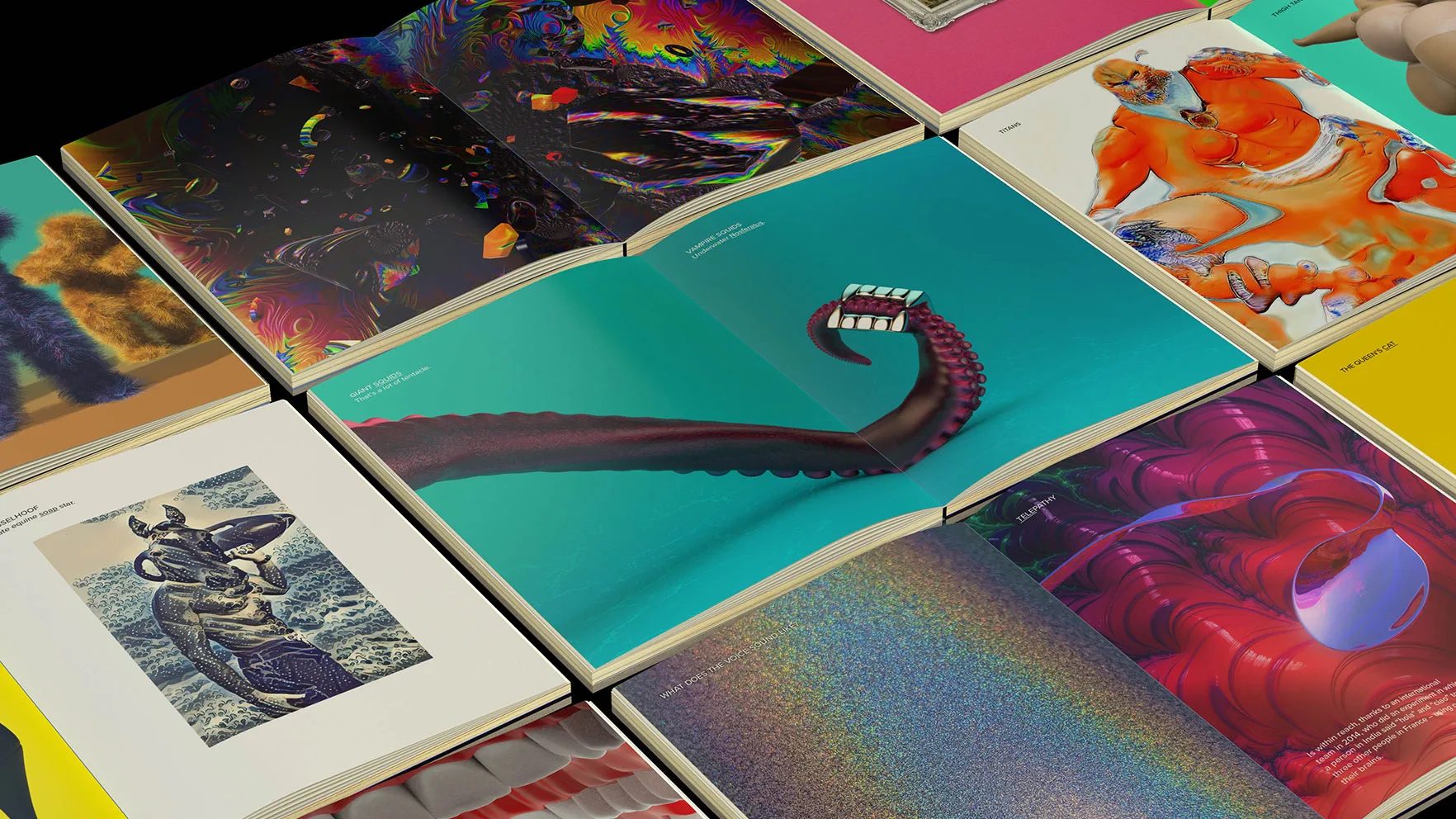
Bringing The Book of Limbo to life
Get lost in the milky way. Fall down the rabbit hole with Alice. End up learning about... whale poop?
Sounds like a typical afternoon traversing a marvellous online wormhole. But how would you capture that wormhole, and take it offline?
Overcoming phone limbo
The weird and wonderful world of the internet is always just click or scroll away. Until suddenly...it’s not. Like on a flight. Or a train ride. Or a dreaded software update.
Or while your shiny new phone is taking forever to transfer over all your data (y’know, the 10,000 photos in your camera roll and apps you haven’t opened for ages).
These are moments of phone limbo, and we wanted to fill them with the same joy we get from looking up random facts online.
Taking the online, offline
‘The Book of Limbo was essentially a kind of a sort of physicalisation, like an artifact of the experience of the Internet.’
Andrew van der Westhuyzen is one of the directors of Collider – the creative brains behind The Book of Limbo.
‘The feeling you get with the Internet and the sense of going in the wormhole and diving into this kind of virtual universe: what would that be if it was something physical?’ asks Andrew.
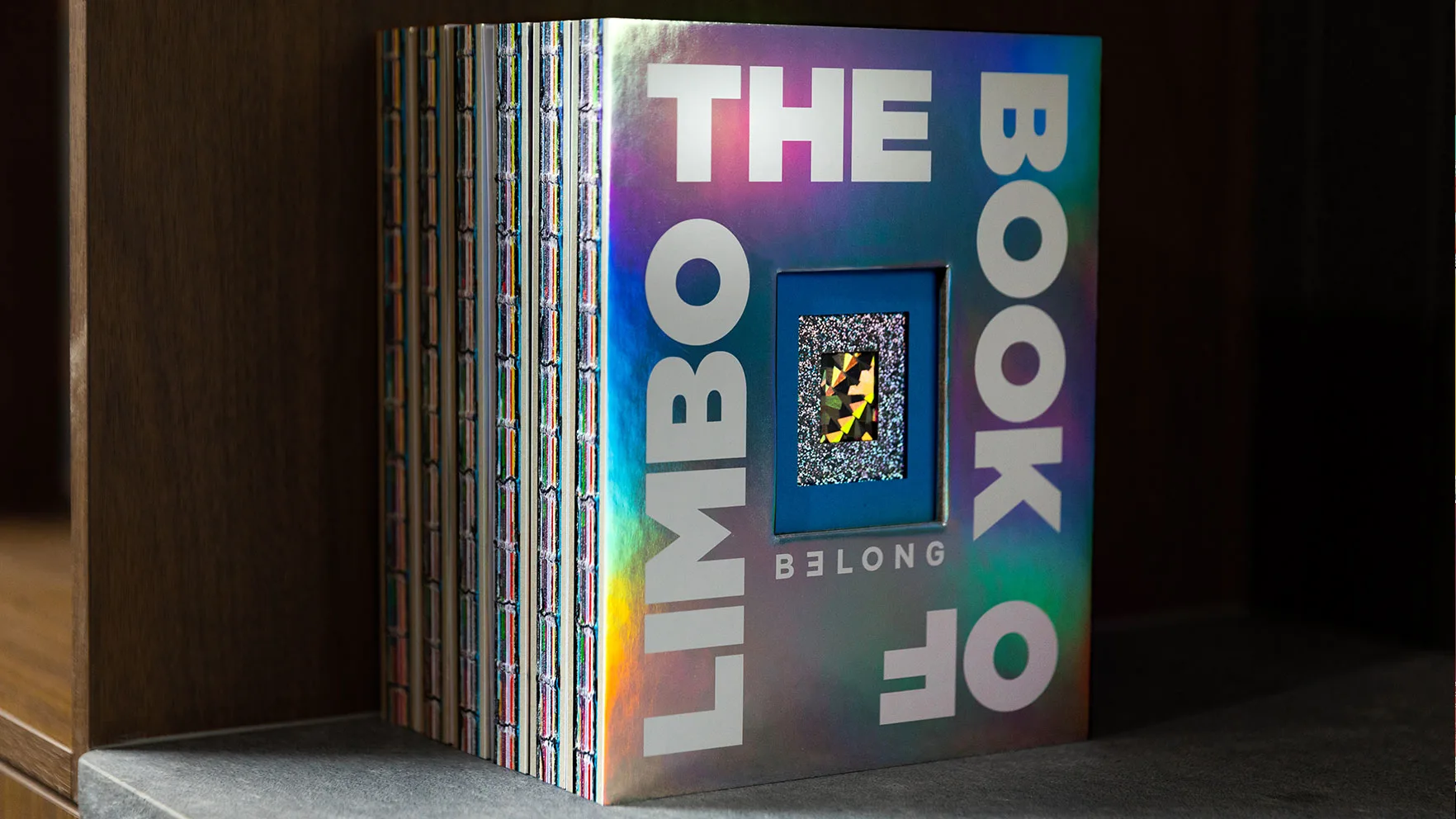
Internet wormholes are sort of a bottomless pit, so The Book of Limbo had to be a wide curation of different media to represent all the wonders of the world wide web.
The pages are full of joyfully chaotic scenes, crafted by CG, photography, paper sculpture, pure typography, and GAN technology.
’It was just about having this really rich tapestry of different techniques and ideas,’ says Andrew.
‘We built a few things in front of the camera in the studio,’ says Kåre Martens, Creative Director at Collider’.
‘There are some shots in there of Koi. You know, the Japanese fish. There’s a recipe in there where we pulled out a lot of spices and ingredients from my kitchen.’
‘There's a glass of whale milk, which is actually hand-milked. That was a bit risky that day when I was filming at sea,’ Andrew and Kåre joke.
(Don’t worry, it’s actually just toothpaste.)
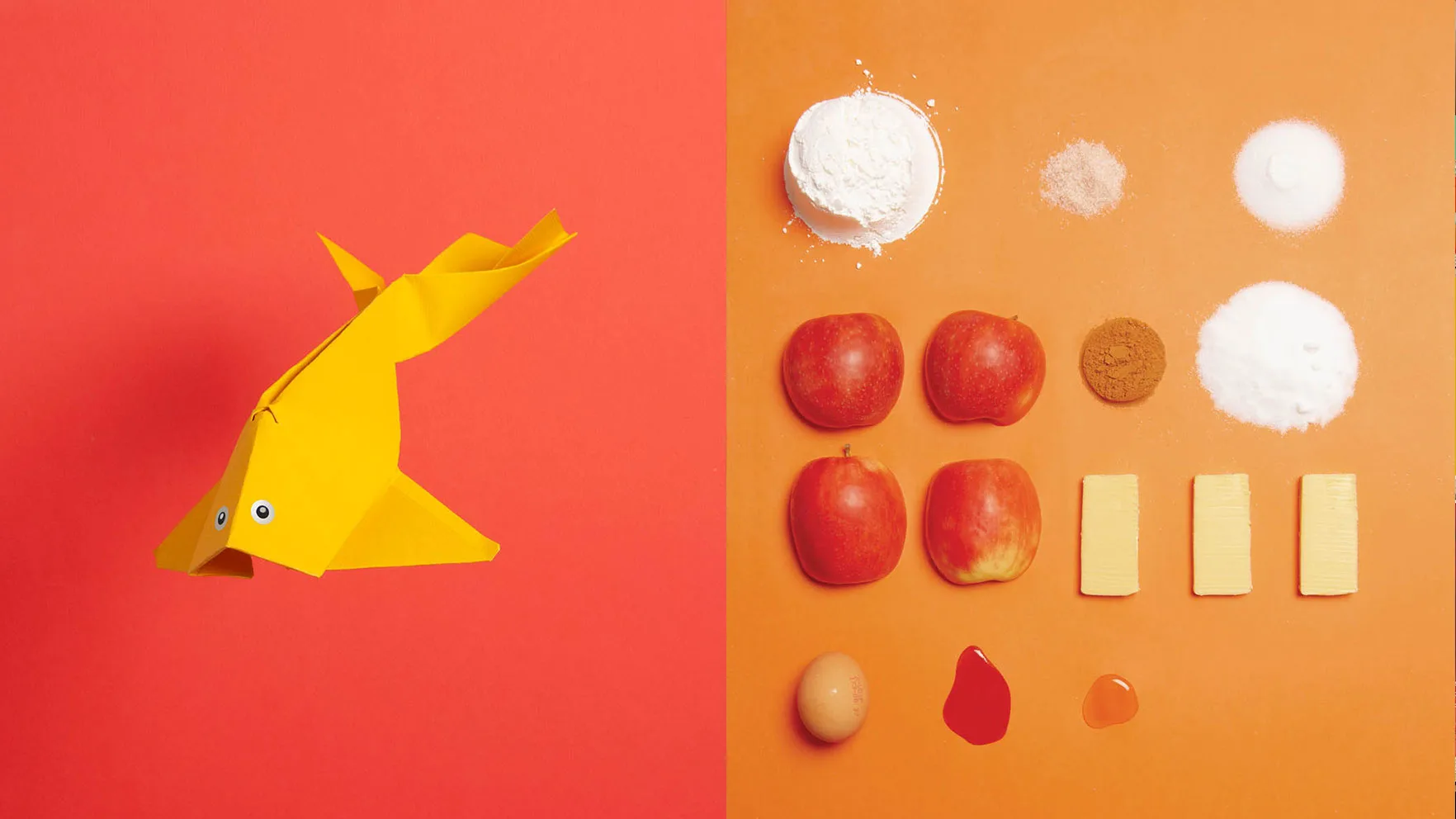
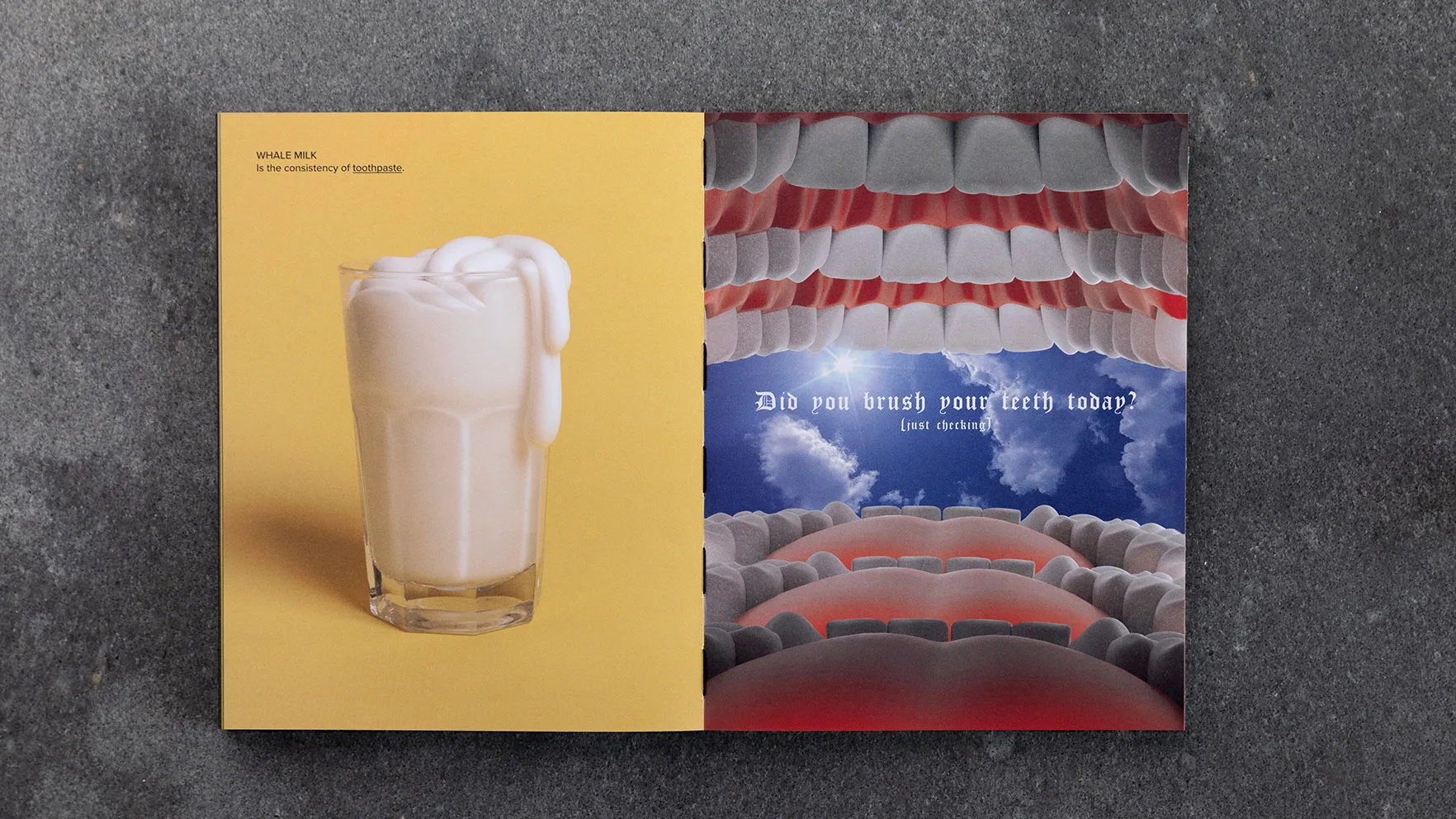
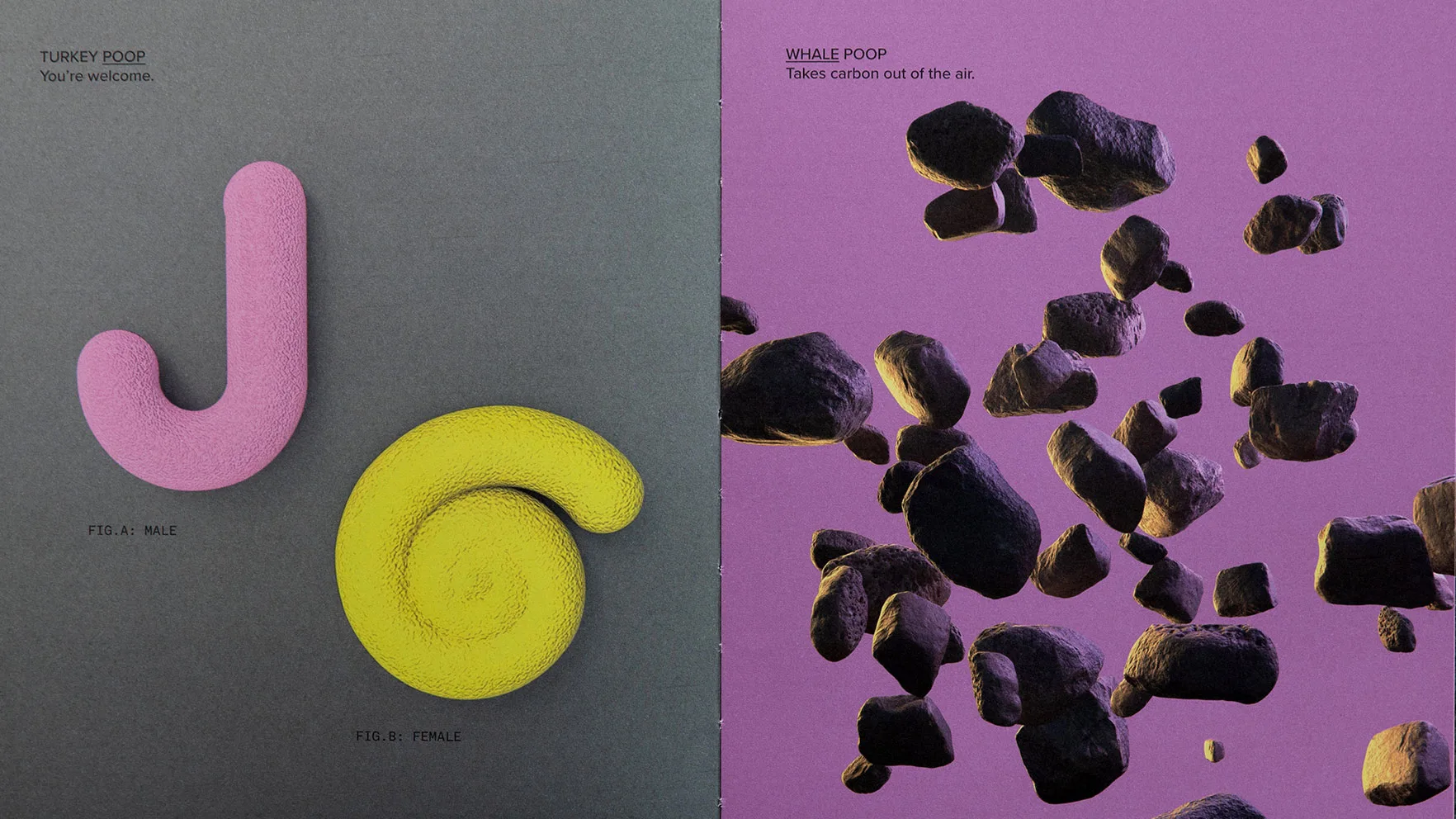
Technology meets art
The Book of Limbo also incorporated machine learning.
‘We used a lot of GAN (Generative Adversarial Network),’ explains Kåre.
‘It’s two computer systems fighting each other, and it’s trying to trick the other computer system. And this other system is trying to pick out the mistakes of the other.’
GAN was used to create a wide scope of creative for the book.
‘We used it for everything from just taking tiny thumbnails and enlarging them, which more practical things, to just creating completely fictitious scenes and imagery where it was sort of about the serendipitous outcome that we wanted to reach by adding certain ingredients and landing on a particular thing,’ says Andrew.
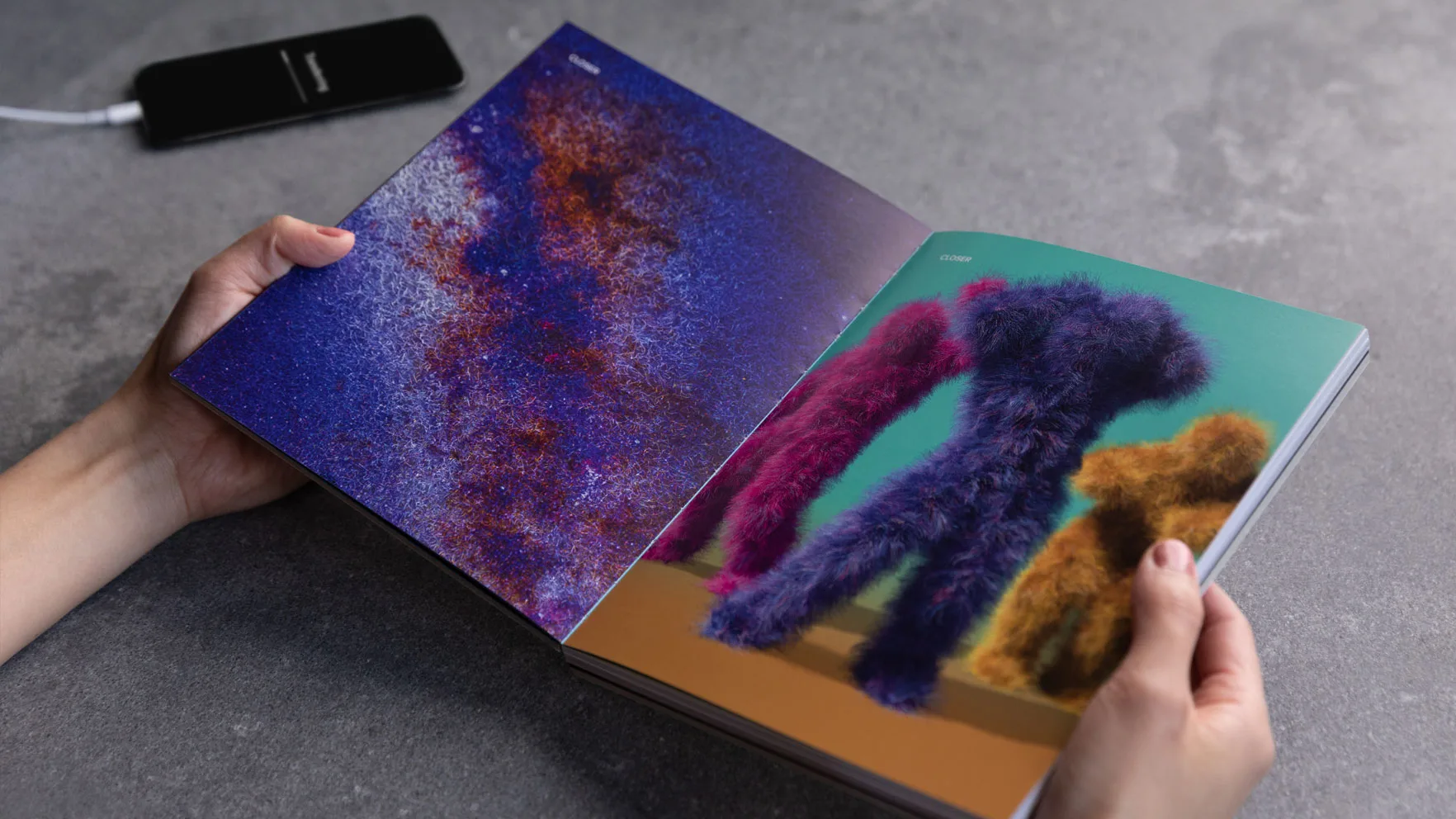
Unique, weird, wonderful
‘We do get a lot of quite strange briefs,’ Andrew smiles.
‘This is probably up there with them, which is great, and you know, credit to Belong for just getting this sort of idea across the line.’
Experience the joyful chaos: download the eBook of Limbo on our website.